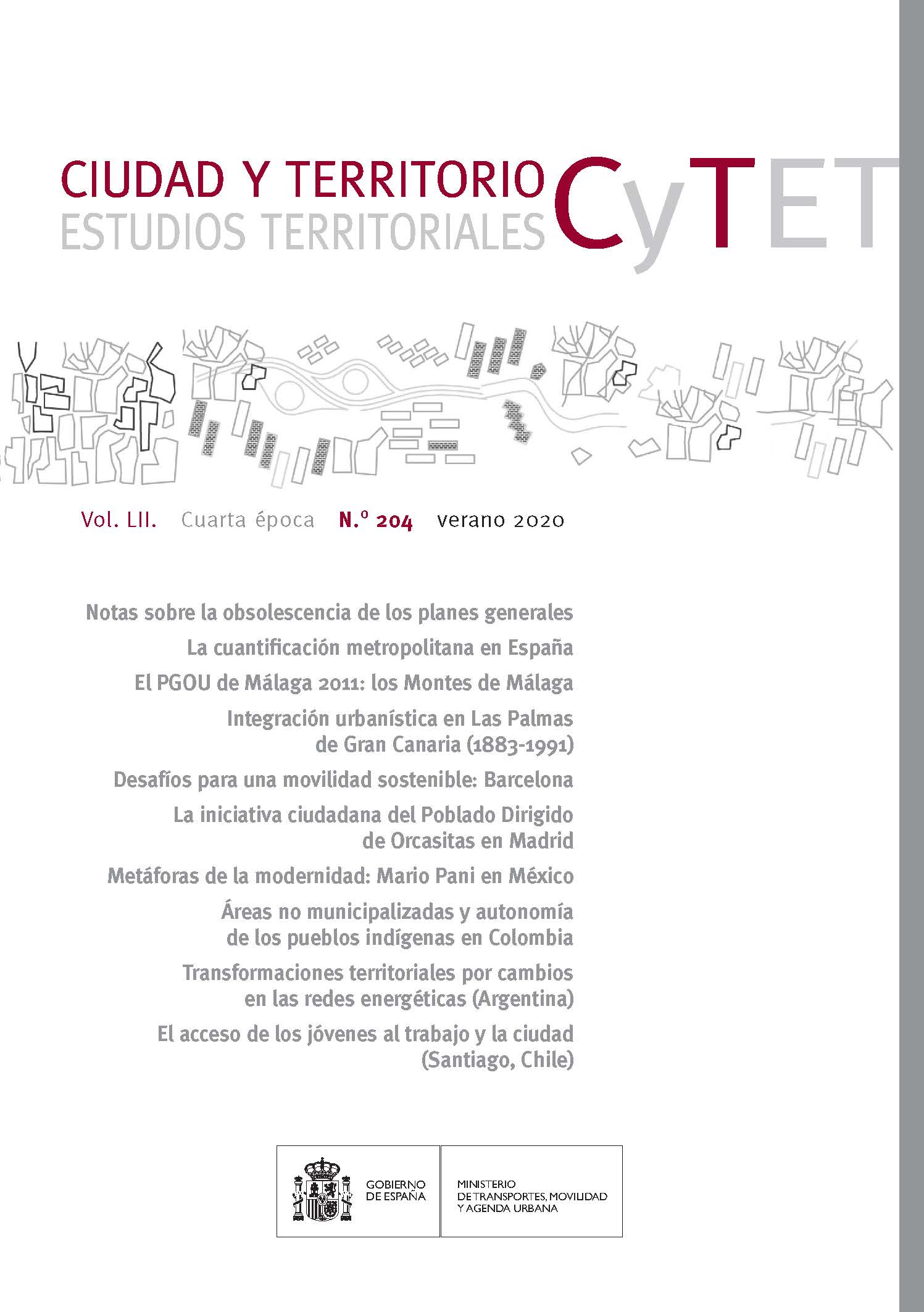Young people's access to work and the city. Territorial looks of inequality and segregation in Santiago, Chile
DOI:
https://doi.org/10.37230/CyTET.2020.204.10Keywords:
Neoliberalism, Chile, Labour markets, Youth unemployment, Urban inequalityAbstract
Chile has been one of the countries in the world where neoliberalism has been applied most orthodoxically. Since 1975 a series of reforms were established in various fields which set the market as the main allocator of resources. With the restoration of democracy, the model was improved and deepened through various mechanisms, global openness being the most important one. This international insertion of the country through a highly globalized national economy has impacted the capital city and its inhabitants, undergoing processes of urban restructuring and forming a metropolitan labour market and segmented social geography, especially for the younger and poorer segments of the population. This has generated mechanisms of exclusion in the most important areas of urban sociability, which need to be deactivated by public policies.
Downloads
Published
How to Cite
Issue
Section
License
Copyright (c) 2020 Luis Fuentes-Arce, Sebastián Rodríguez-Leiva

This work is licensed under a Creative Commons Attribution-NonCommercial 4.0 International License.
Considering the provisions of the current legislation on Intellectual Property, and in accordance with them, all authors publishing in CyTET give -in a non-exclusive way and without time limit- to the Ministry of Transport, Mobility and Urban Agenda the rights to disseminate, reproduce, communicate and distribute in any current or future format, on paper or electronic, the original or derived version of their work under a Creative Commons Attribution-NonCommercial-NoDerivative 4.0 license International (CC BY-NC-ND 4.0), as well as to include or assign to third parties the inclusion of its content in national and international indexes, repositories and databases, with reference and recognition in any case of its authorship.
In addition, when sending the work, the author(s) declares that it is an original work in which the sources that have been used are recognized, committing to respect the scientific evidence, to no longer modify the original data and to verify or refute its hypothesis. Author(s) also declare that the essential content of the work has not been previously published nor will it be published in any other publication while it is under evaluation by CyTET; and that it has not been simultaneously sent to another journal.
Authors must sign a Transfer of Rights Form, which will be sent to them from the CyTET Secretariat once the article is accepted for publication.
With the aim of promoting the dissemination of knowledge, CyTET joins the Open Journal Access (OA) movement and delivers all of its content to various national and international indexes, repositories and databases under this protocol; therefore, the submission of a work to be published in the journal presupposes the explicit acceptance by the author of this distribution method.
Authors are encouraged to reproduce and host their work published in CyTET in institutional repositories, web pages, etc. with the intention of contributing to the improvement of the transfer of knowledge and the citation of said works.








 Enlace a CyTET en Linkedin
Enlace a CyTET en Linkedin